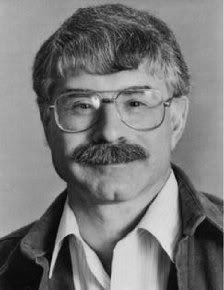A Quote by Arnold Lobel
Knowledge will not always take the place of simple observation.
Related Quotes
Without a complex knowledge of one's place and without the faithfulness to one's place on which such knowledge depends, it is inevitable that the place will be used carelessly, and eventually destroyed. Without such knowledge and faithfulness, moreover, the culture of a country will be superficial and decorative, functional only insofar as it may be a symbol of prestige, the affectation of an elite or "in" group.
A man's knowledge may be said to be mature, in other words, when it has reached the most complete state of perfection to which he, as an individual, is capable of bringing it, when an exact correspondence is established between the whole of his abstract ideas and the things he has actually perceived for himself. His will mean that each of his abstract ideas rests, directly or indirectly, upon a basis of observation, which alone endows it with any real value; and also that he is able to place every observation he makes under the right abstract idea which belongs to it.
The key insight of Adam Smith's Wealth of Nations is misleadingly simple: if an exchange between two parties is voluntary, it will not take place unless both believe they will benefit from it. Most economic fallacies derive from the neglect of this simple insight, from the tendency to assume that there is a fixed pie, that one party can gain only at the expense of another.
May I wish for you the knowledge...that marriages do not take place, they are made by hand; that there is always an element of discipline involved; that however perfect the honeymoon, the time will come, however brief it is, when you wish she would fall downstairs and break a leg. This goes for her too. But the mood will pass, if you give it time.
You have to decide where the line is in such a complicated place like Saudi Arabia. I was so confused by the place - there's no simple story. It's a place that is really sensitive to how it is judged, particularly by people from the West. So in the end I thought: I'm just going to take the reader on my journey to try and understand this odd place.
I really see no harm which can come of giving our children a little knowledge of physiology. ... The instruction must be real, based upon observation, eked out by good explanatory diagrams and models, and conveyed by a teacher whose own knowledge has been acquired by a study of the facts; and not the mere catechismal parrot-work which too often usurps the place of elementary teaching.
Everything necessarily is or is not, and will be or will not be; but one cannot divide and say that one or the other is necessary.I mean, for example: it is necessary for there to be or not to be a sea-battle tomorrow; but it is not necessary for a sea-battle to take place tomorrow, or for one not to take place--though it is necessary for one to take place or not to take place.
Ever since Sir Isaac Newton's times, scientists have worked in the same sort of way: They show a great respect for experiment and observation, They don't cherry pick data, They take a skeptical approach to what they do. And then scientists work together to get a consensus as to what should be believed And that generates very reliable knowledge and that reliable knowledge drives innovation

































